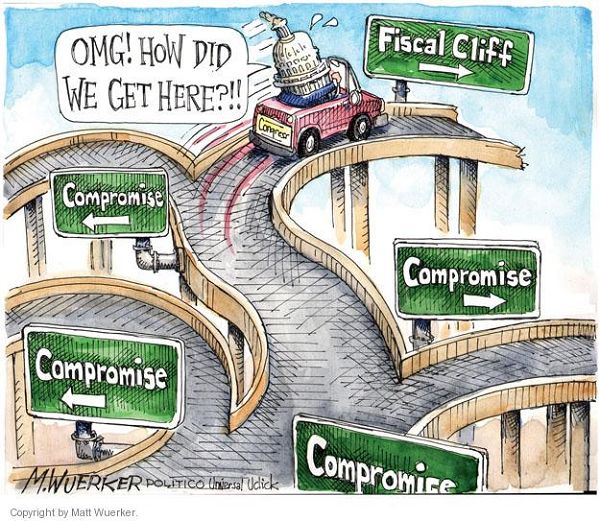You made it! The Mayans were wrong, your family didn’t drive you completely crazy during Christmas and civilization endures. But, there’s another hurtle left to jump: your list of resolutions for 2013. As the number of remaining days in 2012 shrinks, it’s time for you to consider your future…
Will 2013 be the year you (finally) learn to love kale and embrace the treadmill? Is this the year you start– and finish– all of those DIY projects? A year from now, as you reflect upon the past 12 months, will you pat yourself on the back because you did what you finally promised yourself you would do: start your own business and become your own boss?
Or, will you let 2013 be a carbon copy of 2012?
(The correct answer is no.)
If you plan on making 2013 your best year yet (and one of financial independence) owning your own business needs to top your list of new year’s resolutions, and here’s why:
- THE FISCAL CLIFF: Despite what you’ve heard or read, the majority of small business owners aren’t so doom and gloom about the fiscal cliff/slope/precipice as you might think. As the backbone of our nation’s capitalist society, small business owners know and live the value of progress and forward movement. They’re unafraid of putting their shoulder to the wheel and know that no matter what happens, they’ll make it work.
- FUNDING: Traditional SBA-backed loans remain a touch-and-go source of funding for small businesses. Some find traditional lending to be the best and easiest way to raise capital. For others, banks are unwilling to loan for whatever reason. As a whole, banks say they’d like to make more loans but it seems that many have upped their standards due to regulatory pressure. Regardless, securing a loan is definitely possible.
- YOU’RE A VETERAN If you’re a military veteran you are in high demand– especially in the franchise industry. Many franchises are so pro-veteran they’re onlyrecruiting veterans to become franchisees, like J Dog Junk Removal. Often, veterans are offered significantly discounted franchise fees, financial incentives and mentorship opportunities “regular” franchisees don’t receive. As an added bonus, Sprigster’s “Boost a Hero” program is specifically designed to help veterans and their spouses become franchise and small business owners through crowd-funding.
- YOU’RE A FORMER CORPORATE EXECUTIVE OR SMALL BUSINESS OWNER: Exiled or retired corporate executives and former small business owners make excellent franchisees. Franchisors are always keen to recruit those with business experience, especially those with an entrepreneurial spirit and previous management training.
- PREDICTIONS FOR 2013: Again, despite what you may have heard, the franchise industry is yet again poised for growth unseen by most other industries since 2008. The number of franchise establishments is expected to increase by 1.4 percent in 2013, from 746,828 to 757,055 with the number of jobs increasing 2 percent, reaching 8.262 million, according to a study by the IFA’s Educational Foundation. In addition, the same report also projects the gross domestic product of the franchise sector to increase 4.1 percent in 2013 to $472 billion.
Still not convinced? Consider the plethora of available franchise and business opportunities looking for eager entrepreneurs at Veterans Franchise.com.





